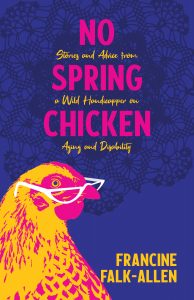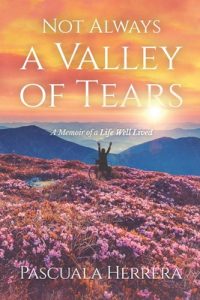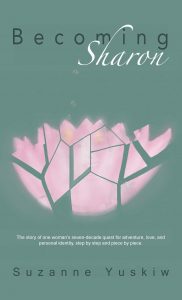GREETINGS FROM PHI!
Welcome to PHI’s 78th Membership Memo. Our print publication, Post-Polio Health, the quarterly 12-page printed newsletter is mailed in February, May, August and November. In the other months, PHI members receive the Memo. Your end-of-the year donations assist us in mailing the printed newsletter to those who do not have access to the internet and who cannot afford a membership. Your support makes it possible to help survivors stay connected to the post-polio community. Thank you to all of you who gave generously this past year! We could not do it without you.
Past iron lung users sought for oral history project
The Mütter Museum at the College of Physicians of Philadelphia, one of the country's foremost medical history museums, with a mission of promoting the heritage and future of medicine and health, recently put up a new exhibit on the Iron Lung. They are looking to get in touch with those who spent time in one to record short verbal histories describing their experiences. The recording can be done via phone or Zoom. If you are interested in participating in this project, please contact us at info@post-polio.org or 314-534-0475, and we can put you in touch with the project coordinator.
Celebrating World Immunization Week
This week was World Immunization Week. The Global Polio Eradication Initiative (GPEI) featured a story on Miran Muhajid, a polio survivor, who now uses his story to limit vaccine refusals and encourage polio vaccination. Listen to Miran recount how the difficulties of his youth have inspired him to help spread awareness and ensure every child in his community is vaccinated. More.
New short documentaries explore comparisons between polio and Covid vaccine experiences
Presented by the University of Pittsburgh Center for Creativity, "Chasing Covid" that takes viewers inside the lab of The University of Pittsburgh’s Center for Vaccine Research where Dr. Paul Duprex, Director and Jonas Salk Professor, and his team have been working collaboratively with scientists around the world to unlock the secrets of COVID-19 and find ways to defeat coronavirus. This engaging and inspiring half-hour program explores how today's research builds on pioneering work of the Pitt Virus lab which developed the Salk polio vaccine and how changes in technology have led to a new "vaccine renaissance."
Another new documentary compares experiences with receiving the polio vaccine in the 1950s in Pitt County, North Caroline, to those getting Covid vaccines there today. The Pitt County Public Information Office produced the short documentary film titled, “The Inoculated: Parallels in Pitt County History.” The filmmakers sat down with several Pitt County natives who were among those vaccinated for polio to learn what it was like during that time and to compare their thoughts and emotions about the COVID-19 vaccine. The documentary can be viewed here.
Other Related Articles
- Before COVID, there was polio. A flashback to our 1950s vaccine era
- Vaccine efforts then & now: survivors, doctor reflect on polio vaccine
- Polio survivor weighs in on pandemic, COVID-19 vaccine process
- ‘If I had been vaccinated, I wouldn’t have gotten polio’: A survivor’s thoughts on the COVID-19 vaccine
Assistive Technology
A recent New York Times article, “Many Older Adults Lack Even Simple, Helpful Equipment,” looked at how many older adults with disabilities are living in homes that are not accessible, and how relatively inexpensive assistive technology (AT) solutions can help them move safely around their homes and take care of their everyday needs independently. Readers might also want to check out the featured comments section, which contains some thoughtful, illuminating comments, along with people identifying resources available to help acquire assistive devices
Did you know? PHI's online Post-Polio Directory has links to funding resources near you. For local assistance, simply type your location into the search bar next to the map. For national resources scan the listings below the map. PHI also has a program to help fund the purchase (up to $800) of a brace or custom-made shoes. Learn more the Joyce and Arthur Siegfried Memorial Fund.
New Books
 No Spring Chicken: Stories and Advice from a Wild Handicapper on Aging and Disability by Francine Falk-Allen - In No Spring Chicken, Francine Falk-Allen―a polio survivor who knows a thing or two about living with a disability―offers her own take on how to navigate the complications aging brings with equanimity (and a sense of humor). The handbook is divided into three sections: Part I is a jaunt through accessible travel pleasures and pitfalls in several parts of the world; Part II addresses the adaptation people who love a handicapped or aging person could make in order to have a lighter, more mutually rewarding relationship. Look for more in the next issue of Post-Polio Health. Available June 29th.
No Spring Chicken: Stories and Advice from a Wild Handicapper on Aging and Disability by Francine Falk-Allen - In No Spring Chicken, Francine Falk-Allen―a polio survivor who knows a thing or two about living with a disability―offers her own take on how to navigate the complications aging brings with equanimity (and a sense of humor). The handbook is divided into three sections: Part I is a jaunt through accessible travel pleasures and pitfalls in several parts of the world; Part II addresses the adaptation people who love a handicapped or aging person could make in order to have a lighter, more mutually rewarding relationship. Look for more in the next issue of Post-Polio Health. Available June 29th.
 Not Always a Valley of Tears: A Memoir of a Life Well Lived by Pascuala Herrera - Pascuala Herrera, a Mexican immigrant woman with a physical disability resulting from childhood polio, had the odds against her, yet she conquered simply by working hard, having unfailing faith, and finding her own life's purpose. Although her mother always told her that “life was a valley of tears,” she learned that although there were many difficult moments in her life, there were also beautiful miracles that happened every day. Herrera tells her life’s narrative with honest painful stories, simple yet joyous triumphs, and humor that will lead all readers to embrace their own struggles and realize that life is "Not Always a Valley of Tears."
Not Always a Valley of Tears: A Memoir of a Life Well Lived by Pascuala Herrera - Pascuala Herrera, a Mexican immigrant woman with a physical disability resulting from childhood polio, had the odds against her, yet she conquered simply by working hard, having unfailing faith, and finding her own life's purpose. Although her mother always told her that “life was a valley of tears,” she learned that although there were many difficult moments in her life, there were also beautiful miracles that happened every day. Herrera tells her life’s narrative with honest painful stories, simple yet joyous triumphs, and humor that will lead all readers to embrace their own struggles and realize that life is "Not Always a Valley of Tears."
 Becoming Sharon by Suzanne Yuskiw - Becoming Sharon chronicles one woman's seven-decade journey to find her true identity even as she is challenged by the aftereffects of childhood polio. Yuskiw's story brushes the edges of both tragedy and triumph against a backdrop of historical moments that intersect with the author's life. The novel touches on her birth during World War II, the polio epidemic in her childhood, racial and social unrest in young adulthood, marriage and widowhood in mid-life, and spiritual and emotional redemption in later life.
Becoming Sharon by Suzanne Yuskiw - Becoming Sharon chronicles one woman's seven-decade journey to find her true identity even as she is challenged by the aftereffects of childhood polio. Yuskiw's story brushes the edges of both tragedy and triumph against a backdrop of historical moments that intersect with the author's life. The novel touches on her birth during World War II, the polio epidemic in her childhood, racial and social unrest in young adulthood, marriage and widowhood in mid-life, and spiritual and emotional redemption in later life.
Leave a Legacy
Below are a few suggested donation types that can be given now during your lifetime or set up as a planned donation to Post-Polio Health International.
1. Donations of Cash: This the simplest and easiest way for you to make a donation. You may receive a charitable tax deduction on your tax return.
2. Donations of Stocks and Bonds: A donation of appreciated stocks and bonds. You could avoid capital gains taxes that would otherwise be due if you sold them directly. Contact us to facilitate.
3. Donations from Retirement Accounts: If you have Traditional or Roth IRAs and are age 70 ½ or older, you may make a qualified charitable distribution directly from these IRAs without incurring any adverse federal income tax consequences. The distribution counts toward any Required Minimum Distribution (RMD), but is not included in calculating the individual taxpayer’s limitation on charitable deductions in the year the donation is made.
4. Donations of Insurance Policies: This donation can be made outright for cash value, or by naming Post-Polio International as beneficiary.
Talk to your financial advisor or attorney about these and other ways to create a meaningful way to help Post-Polio International continue to fulfill its mission.
